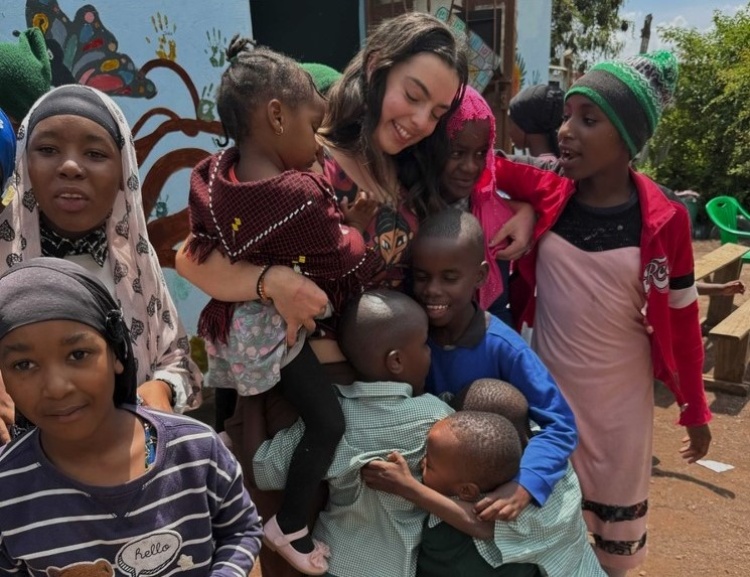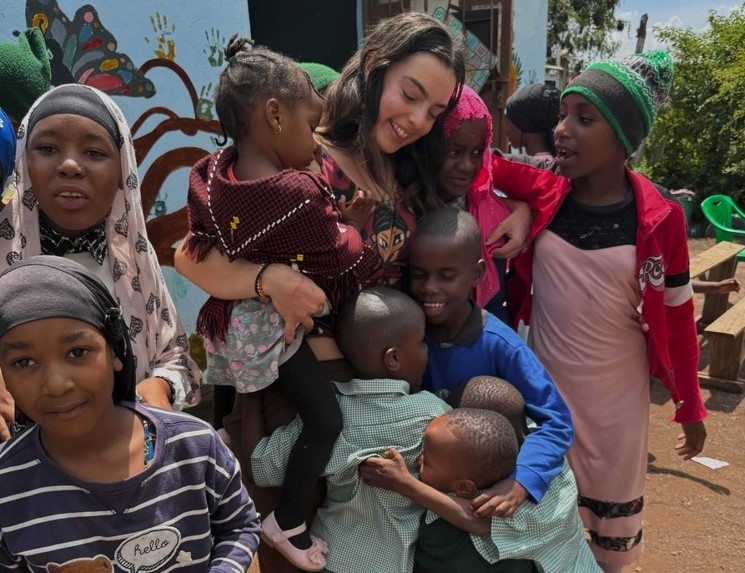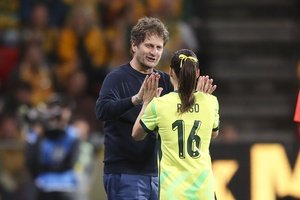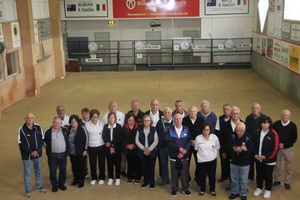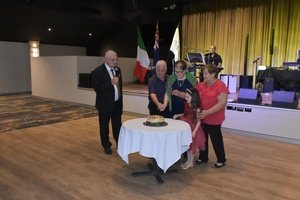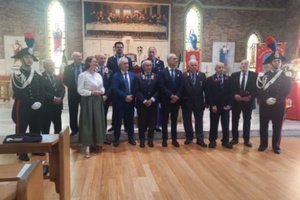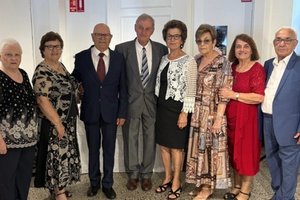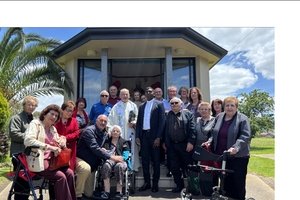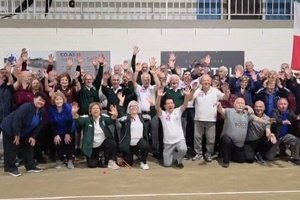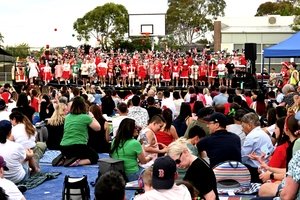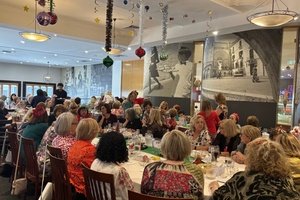MELBOURNE - How often do we hear people from older generations disparage young people with clichés that undermine their value and essentialise them with a long list of pejoratives about their presumed laziness and indifference?
I’ve always tried to avoid falling into this trap and have paid special attention to my own compulsion for it over the years.
Whenever I’ve been tempted to judge entire generations, I’ve often been proven wrong by stories that instantly reignite my trust in young people, their enthusiasm and determination. The latest of these fortunate encounters has been with Flavia Antoniazzi, who will turn 23 next month.
Antoniazzi was born and raised in Australia to Italian parents, and currently studies at Monash University. After becoming the Dux of her high school, she enrolled in a double degree program in Law and International Studies, specialising in human rights.
“Studying other cultures is what interests me the most,” Antoniazzi explains.
“I don’t want a career as a lawyer; I see my future in an international organisation or an NGO because I would like to leave a mark, make a difference.”
Her urge to explore the world is so strong that last year Antoniazzi decided to take a break from university life to do something different, in somewhere new.
Last year she packed a suitcase big enough for a seven-month journey that took her to Portugal, Spain, Turkey, Morocco, Tanzania, Germany, Italy and Taiwan — all by herself.
“I want to be free and immerse myself in [different] cultures … while freeing myself from the constraints of daily life,” she shares.
“To avoid spending too much, I decided to work while abroad, and thanks to the ‘Workaway’ website, I found people who gave me food and accommodation in exchange for work.
“You immerse yourself in the culture and have a purpose,” Antoniazzi emphasises.
“When I was in Spain, for example, I lived on a farm near Toledo, where I helped a family manage the animals while learning a bit of Spanish.”
From a farm in Spain to teaching English in Morocco, Antoniazzi was always on the move, meeting peers who were sharing the same adventure.
Then, for seven weeks Antoniazzi was based in Arusha, a city in north-west Tanzania with a view of Mount Kilimanjaro. There, she volunteered at a small school for disadvantaged children, preparing them for integration into the public education system.
Staying with the school’s founder and his large family, Antoniazzi shared a small, crowded house with them, but it was well-stocked.
“Between the adults and kids, there were about twenty of us sharing the bathroom, which was just a hole in the ground,” she shares.
“And the shower consisted of a tap and a bucket.”
However, these difficulties were minor compared to what she remembers fondly.
“Every morning, they played music, we had breakfast together,” she recalls.
“And the food was excellent. John’s mother, the person hosting me, cooked enough for everyone in a kitchen with just a table and a camping stove on it.”
To get to school, Antoniazzi walked five minutes through busy, crowded streets where she always met someone to chat with. During her stay in Arusha, she also studied Swahili, the country’s official language.
“It’s not a particularly difficult language. I managed to build a sufficient vocabulary for a brief conversation. Everyone in the community was willing to talk to me, which really helped.”
At the school where she taught English as a volunteer, Antoniazzi worked with both younger children, aged three to five, and older ones, aged 11 and 12.
With the younger ones, the connection was immediate, as they were always excited to see her. “Every morning, they welcomed me as if they hadn’t seen me for days, greeting me with great energy, and that alone filled my heart,” she shares.
With the older children, it took some time for them to open up and trust her, but once that hurdle was cleared, it was just as rewarding.
“I liked having a lot of freedom in the classroom with the children,” she says.
“The school principal gave me the topics to cover, but I could let my creativity flow on how to teach them.
“I thought about what I liked when I was their age and recalled games I loved to play in class.”
One thing that stuck out to Antoniazzi was the independence of the children. Even the youngest walked home by themselves after school.
Another observation of hers was how challenging the lessons were, with classes in math, Swahili and English starting from age three.
Antoniazzi’s face lights up with a smile when she thinks of the affection the children showed her.
“During recess, they always wanted to play with my hair,” she shares.
“They made me a lot of drawings. It’s part of their culture to be open to others. They are affectionate with everyone. They hugged me and showed affection continuously.”
Throughout our conversation, the concept of community comes up frequently, and is probably the most significant takeaway Antoniazzi brought back to Melbourne.
“Their idea of socialisation is much more advanced than ours. Just looking out the window you can see that everyone has a purpose, everyone is out talking and socialising.
“Everyone is connected. The concept of ‘a stranger’ doesn’t exist.”
“I lived [in the epitome of] the idea of community, where everything you have is shared,” she continues.
“I think we’ve forgotten this concept. Sharing would benefit everyone. Even the schoolchildren did this spontaneously, as they have been accustomed to doing it since they were little.”
And it’s these values of connection and sharing that Antoniazzi intends to practice now that she is back home. “I like to stop and talk with the people I meet, to have a relationship with those who live in my neighbourhood, who I see every day.”
The altruism and openness she experienced during her long journey have motivated her to incorporate them into her daily life.
“[Because] I received so much, I want to keep the generosity circulating,” she explains.
Back in Australia, Antoniazzi has found a new job as a disability support worker, assisting people with physical or intellectual disabilities.
“It’s often a challenging experience, but also very rewarding,” she says.
Since Antoniazzi has no shortage of energy, she hopes to find a way to collaborate with an organisation that helps refugees and asylum seekers in the coming months, in order to apply the skills she’s gaining from her studies and begin her professional journey.
We say goodbye after almost an hour of conversation, as Antoniazzi must rush off to her blood donation appointment.

